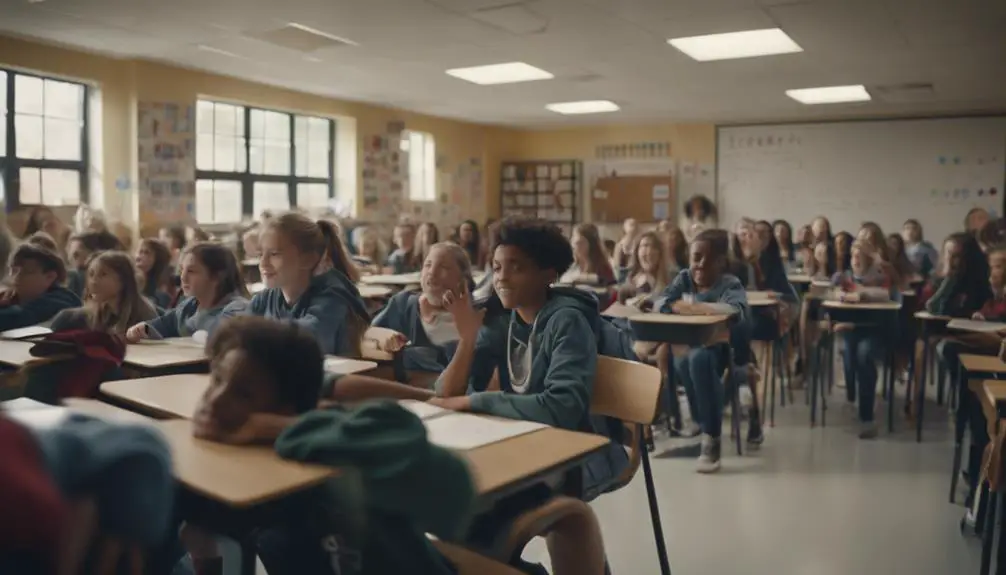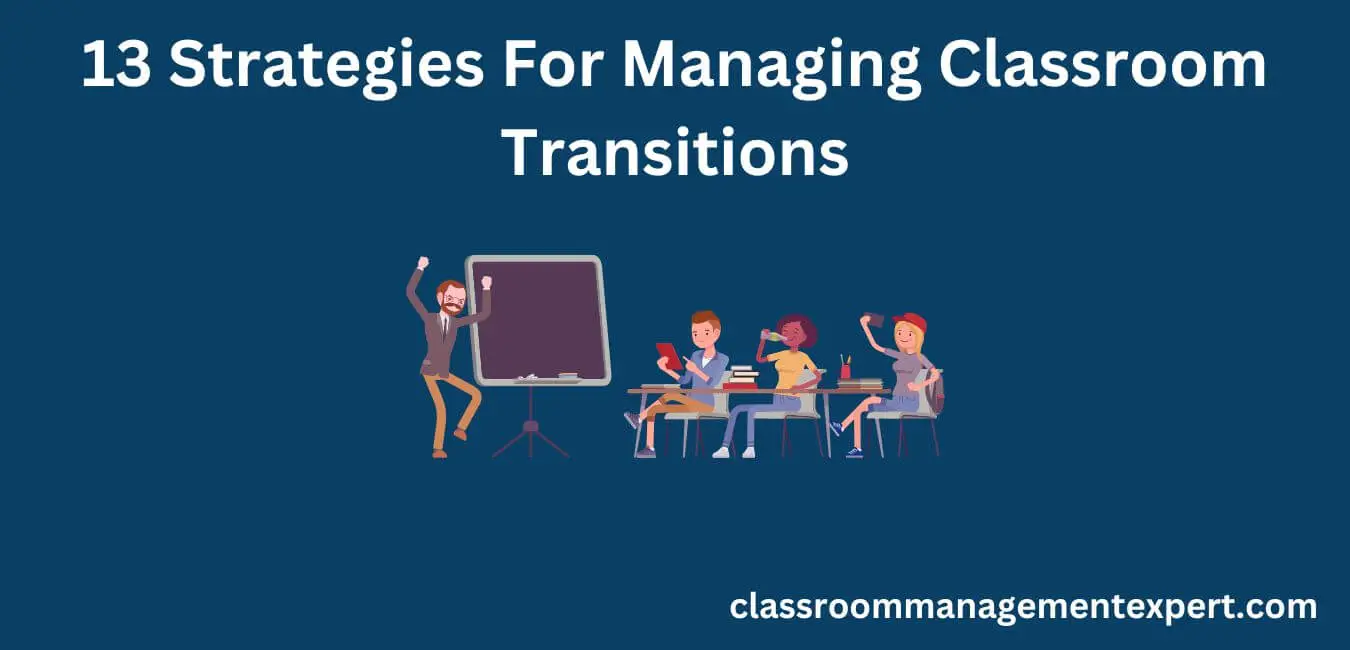The impact of our beliefs regarding our abilities on our learning experiences is truly intriguing. Carol Dweck’s Mindset Theory introduces two contrasting viewpoints: a fixed mindset, which restricts potential, and a growth mindset, which promotes resilience and adaptability. Recognizing these mindsets is crucial as they can profoundly affect our approach to challenges in various areas, including education and personal development.
For instance, individuals with a growth mindset tend to embrace challenges, viewing them as opportunities for growth rather than obstacles. This perspective not only fosters a culture of learning but also encourages continuous improvement in both academic settings and everyday life.
In contrast, those with a fixed mindset may shy away from challenges due to a fear of failure, limiting their growth and learning opportunities.
Moreover, the implications of Dweck’s theory extend beyond the classroom. In the workplace, a growth mindset can enhance teamwork and innovation, as employees feel empowered to share ideas and take risks. Companies that cultivate this mindset often see increased employee engagement and productivity.
In summary, understanding the differences between fixed and growth mindsets is essential for fostering an environment where learning and improvement are prioritized. This awareness can lead to more resilient individuals who are better equipped to navigate the complexities of life and work.
Overview of Mindset Theory
Mindset Theory, created by psychologist Carol Dweck, examines how our beliefs about our abilities shape our experiences and outcomes. This theory provides powerful applications, especially when we aim to uplift and support others. Embracing a growth mindset allows us to see challenges as opportunities for learning rather than obstacles to avoid.
This perspective can significantly change how we assist those around us. For example, when mentoring someone who’s struggling, my focus is on promoting resilience instead of striving for perfection. It’s crucial to nurture the understanding that effort can lead to improvement and that setbacks are an integral part of the journey.
Nevertheless, I’ve encountered obstacles related to mindset. Many individuals hold onto a fixed mindset, believing their abilities are unchangeable. This belief can impede progress and discourage them from pursuing their aspirations.
As we interact with others, it’s vital to recognize these challenges and gently encourage a shift toward a growth-oriented mindset. This approach fosters an environment where everyone feels empowered to grow and contribute, enhancing our community as a whole. Together, we’ve the potential to create a meaningful impact.
Fixed vs. Growth Mindset
Understanding the distinction between fixed and growth mindsets can greatly affect how we tackle challenges and pursue personal growth. A fixed mindset may lead me to think that my abilities are unchangeable, which can generate a fear of failure and restrict my cognitive flexibility. Conversely, embracing a growth mindset allows me to see challenges as chances to build resilience and foster personal development.
When I develop an achievement-oriented mentality, my motivation increases through setting clear goals and utilizing effective learning methods. This adaptable approach not only encourages me to accept feedback but also helps me build a stronger belief in my capabilities. I become more inclined to step outside my comfort zone, recognizing that each obstacle can serve as a valuable lesson on the path to success.
Furthermore, nurturing emotional intelligence is crucial in this process. It helps me comprehend my emotions and those of others, fostering a collaborative environment conducive to growth.
Historical Background
Let’s take a moment to examine the origins of Mindset Theory and the pivotal research findings that shaped it. Carol Dweck‘s work has developed significantly over the years, leaving a notable mark on education and personal growth. Understanding this historical context allows for a deeper appreciation of how her concepts influence our daily lives.
Mindset Theory emerged from Dweck’s research into achievement and success. She discovered that the beliefs individuals hold about their abilities can significantly impact their motivation and achievement. For instance, students who believe their intelligence can grow through effort tend to outperform those who view their abilities as fixed. This insight has led to practical applications in educational settings, where fostering a growth mindset encourages resilience and a love for learning.
Dweck’s findings have prompted educators and parents to rethink how they approach teaching and nurturing children. Instead of praising innate talent, they’re encouraged to praise effort and persistence. This shift in focus supports the idea that challenges are opportunities for growth, which can lead to a more positive attitude towards learning.
Origins of Mindset Theory
Mindset theory, developed by psychologist Carol Dweck, stems from extensive research on how our beliefs about intelligence and ability affect our motivation and actions. A compelling aspect of this theory lies in its psychological foundations, which examine the evolution of our mindset through different stages of development.
For instance, during my own educational journey, I faced challenges in math until a teacher encouraged me to see obstacles as chances for growth. This change in viewpoint resonated with Dweck’s principles.
Cultural factors significantly influence how societies perceive intelligence. In many cultures, a fixed mindset prevails, resulting in rigid beliefs about one’s abilities. This has important implications for education; nurturing a growth mindset can fundamentally alter how students engage with learning.
The practical applications of mindset theory reach beyond the classroom, affecting workplaces and personal relationships as well.
Recognizing the motivational elements that drive us is crucial. Embracing the belief that our skills can expand through effort and persistence empowers both ourselves and those around us to strive for improvement.
This transformation not only fosters individual growth but also nurtures a more supportive and resilient community.
Key Research Findings
Key research findings from Dweck’s studies offer valuable insights into how our mindsets influence our experiences and outcomes. Individuals with a growth mindset typically embrace challenges, persist in the face of obstacles, and view effort as a crucial step toward mastery. Conversely, those with a fixed mindset often avoid challenges and feel insecure about others’ achievements. This understanding is essential for anyone aiming to effectively support others.
Interventions designed to foster a growth mindset have shown significant effectiveness, particularly in educational environments. For instance, when students receive feedback that highlights the importance of effort and learning from mistakes, they’re more likely to develop resilience and improve their academic performance.
Moreover, mindset assessments can assist individuals in recognizing their current mindset. This self-awareness enables people to take concrete steps toward personal development.
These findings emphasize the impact of belief in shaping our reality. As we strive to support others, we can leverage these insights to create environments that promote growth, resilience, and a dedication to lifelong learning.
Collectively, we can foster growth mindsets in ourselves and those we assist, making a meaningful difference in our communities.
Key Principles of Mindset Theory
Understanding the fundamental principles of Dweck’s Mindset Theory can significantly influence our approach to challenges and learning experiences. Central to this theory is the contrast between a fixed mindset and a growth mindset. When I embrace a growth mindset, I perceive challenges as chances to gain knowledge rather than hurdles to evade. This shift in perspective alters how I view failures, transforming them into important lessons instead of mere setbacks.
The application of mindset principles extends beyond individual development; it can revolutionize how we assist others. For example, in mentoring or coaching situations, I can guide others to recognize their capabilities by promoting a growth mindset. This approach enhances resilience and fosters a passion for learning, which is beneficial for everyone involved.
Mindset interventions are also crucial in this process. Simple techniques, such as emphasizing effort instead of inherent talent, can motivate a change in mindset. Implementing these strategies enables me to help others adopt a more flexible and adaptive approach to their challenges.
Ultimately, grasping and applying these principles empowers us to create a nurturing environment that promotes growth, creativity, and collaboration. Together, we can develop a mindset that empowers not only ourselves but also those around us.
Impact on Education
The influence of Dweck’s Mindset Theory on education is significant and transformative. I’ve observed how mindset interventions can change the learning environment, promoting a culture of growth and resilience among students. Emphasizing the concept of “yet” encourages students to perceive challenges as chances to learn, which greatly enhances their resilience.
Teacher training is crucial in this transformation. When educators implement strategies based on mindset theory, they not only enhance their teaching practices but also motivate students to embrace difficulties. It’s encouraging to see improvements in motivation as students work together, exchanging insights and strategies to tackle obstacles.
Parental involvement is another vital component of this journey. When parents grasp and support a growth mindset, they reinforce the lessons taught in the classroom, creating a unified message that boosts academic achievement.
Ultimately, incorporating Dweck’s principles into education fosters a supportive environment where every student feels empowered to take risks and strive for excellence. This approach establishes a community that values effort and perseverance, and I’m enthusiastic about being part of this significant change.
Role of Praise and Feedback
When I consider the significance of praise and feedback, I recognize their crucial role in shaping our mindset. Praise can either promote a growth mindset or bolster a fixed mindset, influenced by the manner in which it’s expressed.
For instance, when feedback focuses on effort and improvement rather than just outcomes, it encourages individuals to embrace challenges and learn from mistakes. Understanding the various forms of feedback is essential for effective communication and building resilience.
Constructive feedback, which highlights specific areas for improvement, can motivate individuals to strive for excellence, while positive reinforcement can enhance confidence and inspire continued progress.
Impact of Praise
Praise is crucial in shaping our mindset and has a significant impact on our motivation and how we tackle challenges. Recognizing the effectiveness of different types of praise is vital, particularly in nurturing intrinsic motivation. When we commend effort instead of solely focusing on results, we create an environment that promotes adaptive responses and alleviates performance pressure.
To illustrate how various recognition styles affect motivation, I developed a straightforward table:
| Recognition Style | Impact on Motivation | Emotional Resilience |
|---|---|---|
| Process Praise | Enhances intrinsic motivation | Fosters resilience in the face of setbacks |
| Outcome Praise | Generates performance pressure | Can instill a fear of failure |
| Balanced Praise | Encourages adaptive responses | Promotes a growth mindset |
The timing of feedback plays a critical role in cultivating a positive motivational atmosphere. Maintaining a balance in reinforcement helps establish a culture that prioritizes growth and learning. Being intentional with our praise can inspire others to embrace challenges and build emotional resilience, empowering them to thrive in their endeavors.
For example, consider a student who works hard on a challenging project. Praising their effort—such as saying, “I admire how much effort you put into this,”—can motivate them to continue working hard and developing their skills, whereas saying, “You got an A on this project,” may create anxiety about maintaining that high performance in the future.
Types of Feedback
Understanding the different types of feedback we provide can significantly impact both learning outcomes and student motivation. I’ve found that utilizing feedback focused on growth helps students recognize their potential and fosters a passion for learning. Instead of merely praising results, I concentrate on actionable insights that emphasize effort and effective strategies.
Constructive criticism is vital in this process; it directs students during formative assessments and assists them in making improvements.
Incorporating peer feedback encourages a collaborative atmosphere. When students assess each other’s work, they enhance their critical thinking skills and develop empathy. I promote self-assessment practices, encouraging students to reflect on their own progress. This creates feedback loops that reinforce their learning journey.
To ensure the effectiveness of feedback, I strive for clarity and specificity. Encouraging students to reflect helps them identify their strengths and areas that need improvement. Thoughtful feedback empowers students to take ownership of their learning.
The objective is to foster resilience and a growth mindset, enabling students to succeed in their educational endeavors. We must be intentional with our feedback to truly benefit those we serve.
Mindset Development Strategies
Nurturing a growth mindset is essential for achieving success in both personal and professional spheres, and it begins with deliberate strategies. Incorporating mindset exercises into our daily lives can lead to meaningful and lasting change. One effective method is resilience training, which equips us to recover from setbacks and perceive challenges as opportunities for growth.
Setting clear and attainable goals serves as another powerful strategy. Establishing specific, measurable objectives allows us to monitor our progress and appreciate our achievements, no matter how small.
Engaging in self-reflection practices, such as journaling, provides valuable insights into our thoughts and behaviors. This approach enhances our emotional intelligence and equips us to manage our feelings more proficiently.
The practice of positive affirmations is vital for reinforcing a growth mindset. Regularly affirming our capabilities and potential encourages a more optimistic perspective.
Adapting our learning approaches is also crucial; it enables us to modify our strategies in response to new information or challenges.
Furthermore, cultivating cognitive flexibility is important. This entails being receptive to change and exploring different viewpoints.
Collectively, these strategies can cultivate a growth mindset that not only benefits us as individuals but also empowers those around us.
Applications in Student Development
In today’s educational environment, implementing Dweck’s mindset theory can significantly enhance student development. Here are three effective strategies for applying this approach:
- Boosting Student Motivation: Cultivating a growth mindset encourages students to embrace challenges and see setbacks as chances to learn and improve. For instance, when students tackle difficult subjects, they can be taught to focus on the progress they make rather than just the grades they receive, fostering a more positive attitude towards learning.
- Closing Achievement Gaps: Building resilience among students is crucial for helping them, regardless of their backgrounds, develop a strong sense of self-efficacy. Programs that teach skills like perseverance can empower students to push through obstacles and reach their academic goals. For example, schools can implement workshops that focus on strategies for overcoming academic struggles, benefiting all learners.
- Encouraging Collaborative Learning: When students adopt a growth mindset, they positively impact their peers, creating a more enriching learning environment. Group projects or peer tutoring sessions can be structured to promote shared learning experiences, where students support one another in overcoming challenges.
To effectively implement these strategies, professional development for teachers centered on mindset principles is vital. Educators who understand and apply these concepts can create classrooms that nurture social-emotional learning.
Moreover, parental involvement is crucial; when parents demonstrate a growth mindset at home, it reinforces the principles taught in school, creating a consistent message for students.
Research Supporting Mindset Theory
In examining the research that backs Mindset Theory, I’ve encountered several compelling findings that emphasize its importance. Evidence indicates that students who adopt a growth mindset generally achieve higher academic performance and are more willing to confront challenges.
This influence on the learning process has the potential to transform our approach to education and personal growth. For instance, students with a growth mindset not only see setbacks as opportunities for improvement but also cultivate resilience, which is crucial in both academic and life pursuits.
This shift in perspective can lead to enhanced motivation and achievement, encouraging educators and individuals alike to foster an environment that nurtures a growth mindset.
Key Research Findings
Research supporting Dweck’s Mindset Theory reveals intriguing insights into how our beliefs about intelligence and abilities can significantly influence our learning and performance.
Understanding that our mindset isn’t fixed but can be developed through specific strategies is empowering. Here are three key findings that stand out:
1. Mindset Assessment: Research indicates that individuals who recognize their own mindset—whether it’s fixed or growth—are better equipped to handle challenges, which enhances their resilience.
This self-awareness allows them to approach obstacles with a more constructive attitude.
2. Mindset Interventions: Studies show that targeted interventions aimed at fostering a growth mindset can lead to increased motivation and improved academic performance.
When learners are informed that abilities can be cultivated, they’re more likely to embrace challenges rather than shy away from them.
For example, programs that encourage students to view failures as opportunities for learning have shown positive results in engagement and achievement.
3. Long-term Effects: Evidence supports the idea that adopting a growth mindset can result in enduring changes in one’s approach to learning.
This shift encourages a lifelong passion for growth and self-improvement, allowing individuals to continually strive for better outcomes in various aspects of their lives.
These insights not only underscore the significance of mindset but also provide practical applications for those looking to empower others.
Implementing mindset assessments and targeted interventions can create supportive environments that foster personal growth, helping individuals realize their full potential.
Impact on Learning
Mindset significantly influences how we learn and interact with new information. Reflecting on my own experiences, I recognize that adopting a growth mindset has enhanced my motivation and encouraged cognitive flexibility. This outlook enables me to see challenges as valuable opportunities, which boosts my emotional resilience when faced with difficulties.
Cultivating beliefs in my own abilities has led to increased academic persistence, even during tough times. I’ve discovered that using effective learning strategies and setting clear goals can profoundly affect my performance. For example, when I establish specific, attainable goals, I not only sharpen my focus but also enhance my overall learning results.
Furthermore, I’ve observed that interactions with peers and the influence of teachers are crucial in this learning journey. A nurturing classroom environment promotes open discussions and teamwork, allowing everyone to flourish.
When instructors embody a growth mindset, it encourages students to recognize their potential, resulting in more enriching learning experiences.
Understanding how mindset impacts learning has empowered me to better support others, creating a space where everyone can develop and succeed collectively. This awareness is essential, as it fosters an atmosphere of growth and encourages collaboration among learners.
Critiques and Limitations
While many educators and psychologists commend Dweck’s Mindset Theory for its focus on growth and resilience, it’s important to examine its critiques and limitations. Here are three notable concerns that frequently arise:
- Limitations of application: Mindset Theory may not be effective in every situation, potentially leaving some learners without the anticipated advantages.
- Cultural considerations: The theory frequently neglects the influence of cultural backgrounds on individuals’ perceptions of failure and success, which can result in diverse psychological impacts.
- Measurement challenges: Accurately assessing mindsets presents difficulties, leading to empirical criticisms regarding the validity of the theory’s assertions.
Reflecting on these aspects reveals that, although Dweck’s work has initiated meaningful discussions, it’s crucial to remain receptive to different theories and methodologies.
Concentrating exclusively on growth may overshadow the significance of emotional well-being and stability in the learning process.
Moreover, applying Mindset Theory in varied educational environments can be daunting for educators.
Recognizing these critiques allows us to better address the needs of our communities and create an environment that genuinely supports all learners.
Adapting our understanding for the benefit of everyone involved is essential.
Conclusion
Dweck’s Mindset Theory provides essential understanding of how our beliefs influence our educational experiences. Research indicates that students who adopt a growth mindset are 34% more likely to succeed academically. This mindset encourages individuals to embrace challenges and view setbacks as valuable learning opportunities, fundamentally changing how we approach education and personal development. By fostering a growth mindset, we not only unlock our own potential but also motivate those around us to strive for excellence. Continuously pushing our boundaries can lead to remarkable transformation in both our lives and the lives of others.



















